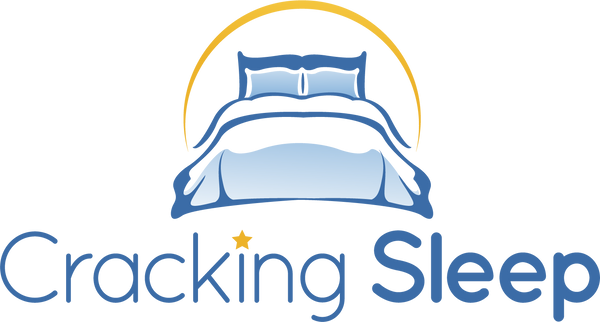Read time: 5 minutes
What's inside?
- How does caffeine affect my sleep?
- Why do we crave caffeine?
- A fairground ride you can't get off.
- Messing with your hormones and your head.
- How can I take back control of my sleep?
How does caffeine affect my sleep?
There is probably no drug on the planet more freely available than caffeine. Obviously, it is a big player in coffee but also makes a significant appearance in tea and lots of fizzy soft drinks too.
Why do we crave caffeine?
Put simply, it makes us feel better… at least for a short while.
By stimulating our central nervous system, caffeine is known for its ability to ward off drowsiness and enhance alertness. As with other things, like chocolate, it does this by answering your body’s request for a quick dopamine hit.
However, its impact on sleep is significant and multifaceted.
- What does caffeine do to my sleep cycle?
Caffeine can interfere with your circadian rhythm, leading to difficulties in falling asleep and reduced sleep quality. It blocks adenosine receptors, a regulator that promotes sleep balance. By blocking these receptors caffeine does a canny job of keeping you awake when the rest of your body knows it should be sleeping.
- What about sleep quality?
Even if you manage to fall asleep after consuming caffeine, the quality of sleep can be compromised. This can result in you experiencing lighter sleep and more frequent awakenings.
- And what about falling asleep in the first place?
Studies have shown that caffeine intake 0, 3, or 6 hours before bedtime can prolong the time it takes to fall asleep.
- Okay, I fell asleep. It’s all good now, right?
Regular caffeine use can lead to a decrease in overall sleep duration, contributing to cumulative sleep debt. This study took a good look at how caffeine impacts both sleep quality and general daytime routines.
- How can caffeine impact the benefits of sleep?
Caffeine can alter the normal stages of sleep, particularly reducing the amount of deep sleep, which is crucial for physical restoration and memory consolidation.
A fairground ride you can’t get off
The relationship between caffeine and sleep can become a vicious cycle. Sleep deprivation can lead to increased caffeine consumption to combat the tiredness, which in turn further disrupts sleep… creating a loop like being on a fairground ride that refuses to stop.
Messing with your hormones and your head
Caffeine's impact can extend to the hormonal level too, particularly affecting melatonin, the hormone responsible for regulating sleep. Its consumption can lead to a reduction in melatonin production, thus disturbing the body's internal clock.
Now, when researching for this blog I found melatonin isn’t a straight-forward case of taking more will make you sleepy. It seems to be a bit more complicated than that. However, it is fair to say that melatonin does play a part in helping most of us to achieve the sleep-trigger that allows us to nod-off.
So, any impact on that hormone being allowed to kick-in could prevent us from getting the initial signal to nod-off… and caffeine can certainly cause that to happen.
How can I take back control of my sleep
- Limit Caffeine Intake
Restrict the amount of caffeine consumed, especially in the second half of the day. Matt Walker, who wrote the book ‘Why We Sleep’ suggests no more than 3 cups of coffee in the morning and nothing past midday.
This guy is a pretty well-known sleep expert and claims the average adult will still have a quarter of the caffeine consumed in their system 10 to 12 hours after taking it.
- Be Aware of Hidden Caffeine Sources
Besides coffee, caffeine is present in tea, chocolate, some medications, and energy drinks. Not all make it clear on the label either, so it can sometimes be difficult to avoid altogether.
- Create a Sleep-Conducive Environment
A quiet, dark, and cool bedroom can help counteract some of the sleep-disruptive effects of caffeine.
This one can cause marital disagreements but avoiding screens, including TV, in the bedroom can help to create that dark, cool and quiet space sleep needs to flourish.
- Establish a Relaxing Pre-Sleep Routine
Engaging in calming activities like reading or meditation can help ease the transition into sleep.
Taking a bath can help too. Although it is warm while you are in the bath, the moment you step-out you will begin to cool down. This cooling effect will help trigger your built-in sleep signal.
- Consider Caffeine Alternative
If you rely on caffeine for energy, you could try exploring alternatives like physical activity or short naps that don't interfere with night-time sleep.
- Stay Hydrated
Caffeine has diuretic effects, which means it helps your body lose water. Ensuring you drink enough water, without going overboard, can help mitigate some of its negative impacts on sleep such as a dehydration-triggered headache.
- Seek Professional Advice if Needed: Theirs always a next step when our bodies don’t work in the way we expect them to. If caffeine-related sleep issues persist, consulting your doctor may be worth considering.
Conclusion
While most of us need to weigh-up our own pros and cons of life, caffeine is a undoubtedly a popular stimulant with several benefits but its impact on sleep cannot be overlooked. If anything containing caffeine currently helps you get through the day, it may be worth working out a routine (such as a morning-only one) that allows you to get your hit without impacting your sleep quality and overall well-being too much.
Hopefully some of the info here will help you get a good sleep without impacting any enjoyment you get from the odd cup of coffee or chocolate bar.
Keep Breathing.

